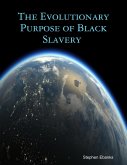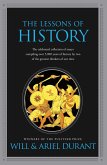In these lectures I intend to deal with the purpose of history. I would not, however, be misunderstood. My aim is not, by making another attempt to find the increasing purpose running through the ages, to win permanently the laurel which, hitherto, ambitious philosophers have worn only for a season. There is, no doubt, a kind of rapture in seeing history as St. Augustine saw it,—the progress of the City of God from earth to heaven; and there is a kind of pride not wholly ignoble, in seeing it as Hegel did,—the vibrating evolution from the brooding absolution of the East to the self-conscious freedom of one's own philosophy embraced and made universal by the civilizing energy of one's own state. My aim is more modest. It is not romantic, but technical. Metaphysics rather than poetry is to be my domain, although I cherish the hope that poetry may not, therefore, be misprized. If it may ultimately appear, not only as an ornament to living, but also as an exemplary method of living well, I may even now invoke the Muses to my aid, but Clio first, and, afterwards, Calliope. It is my aim, through an examination of what the historian himself proposes, to discover in what sense the idea of purpose in history is appropriate, and to what ideas we are led when we think of history as the record of human progress.
Bitte wählen Sie Ihr Anliegen aus.
Rechnungen
Retourenschein anfordern
Bestellstatus
Storno









